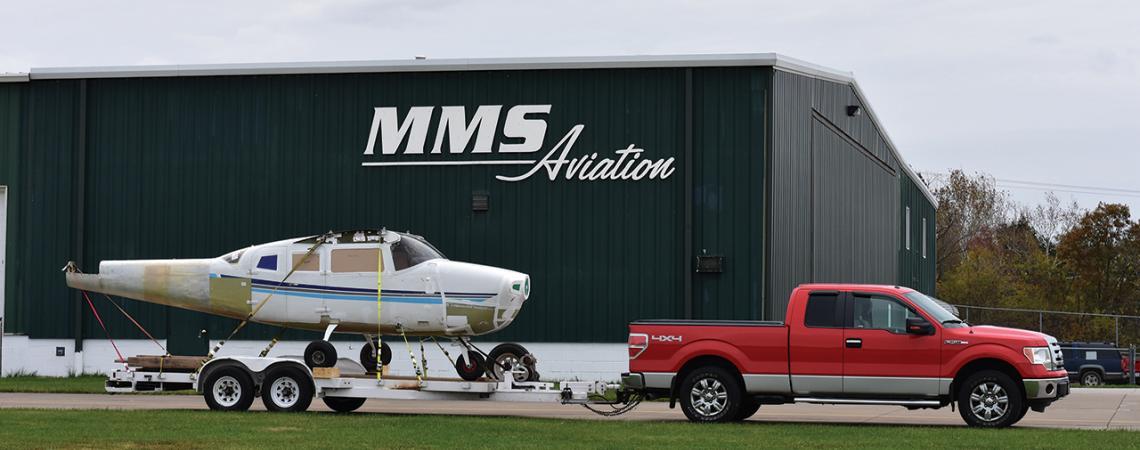The staff at MMS Aviation, from CEO Phil Maddux on down, is fully funded by donations from hundreds of congregations, individuals, and businesses around the world.
In the Christian mission field, it can be difficult, to say the least, to reach remote regions of faraway places such as Honduras, Haiti, Zambia, Papua New Guinea, or Mozambique. Aircraft play a vital role as missionaries deliver food, supplies, and the Word of God in a matter of hours or days to areas that used to require weeks to reach on foot.
With such difficult duties, of course, those aircraft require a good deal of repair, overhaul, and routine maintenance. That’s where Missionary Maintenance Services comes in — not just to repair those planes, but to train mechanics who often take that training with them when they fly on missions of their own.
“Aircraft play a life-and-death role in the mission field,” says CEO Phil Maddux. “Our goal is to keep those planes flying for people in need.”
The operation started more than four decades ago at a rural property near Newcomerstown, Ohio. Jim Miller and his wife, Maxine, family members, and several friends saw that need and established a hands-on apprenticeship program to train people in the trade of airplane repair and maintenance.
Back in 1975, the operation included a machine shop in the garage and basement, while a former chicken coop served as the first paint booth. Steady growth led to expansion to the Richard Downing Airport in Coshocton, and MMS now has 16,000 square feet of hangar space and easy runway access. The crew has grown to 25 staff families.
“God put together a good group of people in this green metal building,” Maddux says. “We have no payroll, from the newest apprentice to the CEO, as we are supported by hundreds of congregations, individuals, and businesses here in the United States and beyond.”
Apprentices embark on a 30-month training program under the supervision of licensed and qualified staff. They learn by doing in a program that supplies aircraft repair, overhaul, and modification free of labor charges to Christian missionary organizations. Those successfully completing the rigorous testing earn Federal Aviation Administration mechanic licenses. Some continue with flight training at other locations, while others head to the mission field, where their services are sorely needed.
MMS Aviation also sends rapid response teams into the field for periods ranging from a week to a month or more. Maddux recalls one such trip when team members went to Honduras to assess damage to a Cessna 206 caused by a midair collision with a vulture. While there, they pitched in to diagnose and repair a generator that supplied power to the mission hospital, allowing the surgical schedule to proceed, instead of waiting days or weeks for repair.
Maddux figures MMS Aviation has saved missions $1.5 million in labor costs alone, but they also can realize a savings on parts through the program — thanks to benefactors who might donate damaged or unwanted planes as a source for needed parts, and to skilled MMS mechanics, who frequently create parts in the machine shop. The parts list alone for one damaged plane was estimated at $80,000, but MMS personnel put the aircraft together for only around $10,000, according to Maddux.
The internet also serves as a source of parts for vintage aircraft, like a recently overhauled 1945 Piper Cub that the mission group Columbia for Christ plans to use for training purposes.
Once repairs to an aircraft are complete, team members gather outside before each plane leaves the facility. Well-wishes and prayers precede takeoff — a fitting goodbye for the aircraft that will improve living conditions in the mission field.









